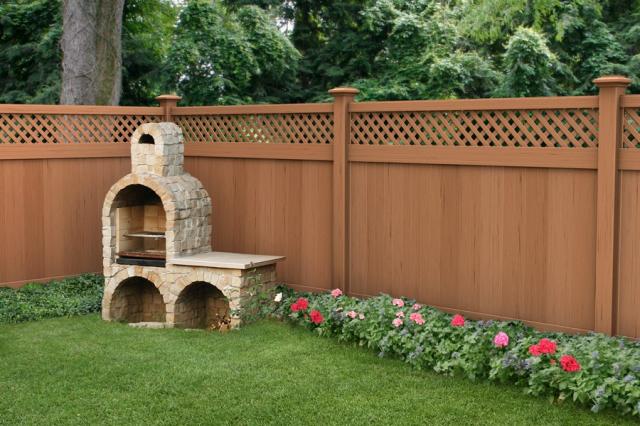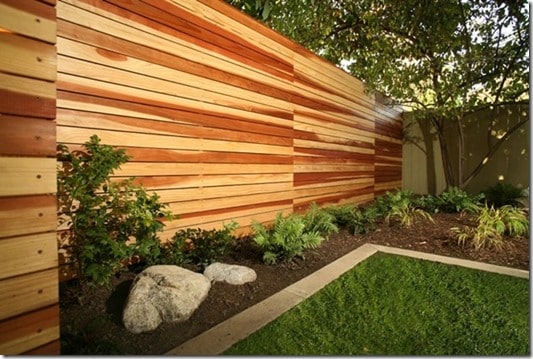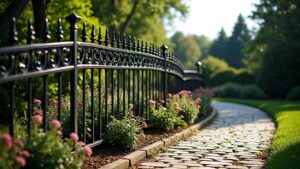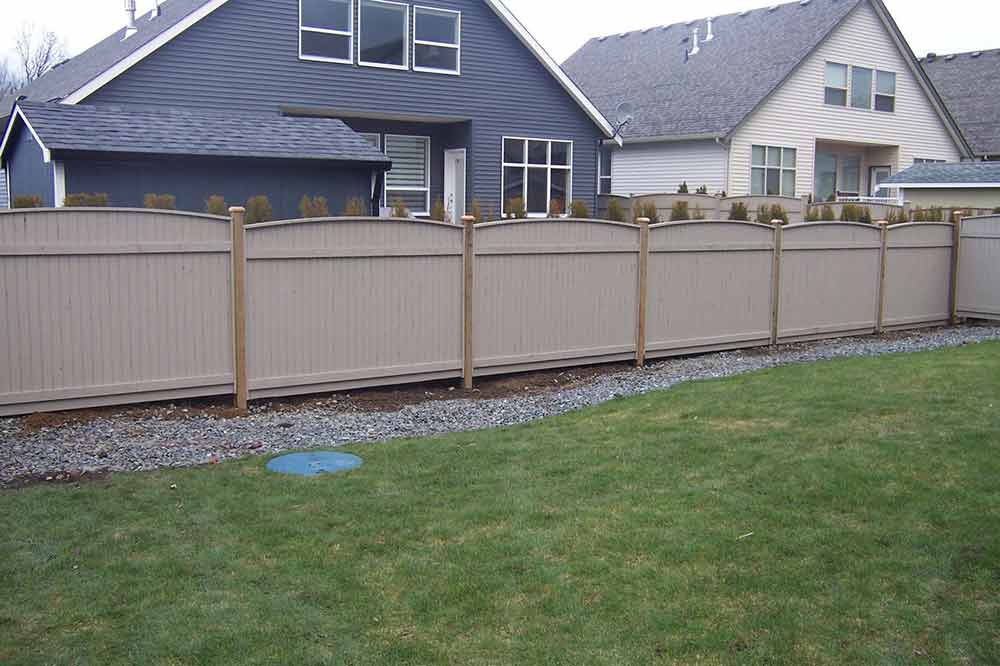
Have you ever found yourself pondering the intricate web of property boundaries and fencing regulations? As a homeowner, the idea of erecting a new fence might seem like a straightforward task, but the reality is often more complex than you might think.
Before you start planning your dream fencing project, it’s crucial to understand the legal requirements and your neighbors’ rights. So, the burning question is – do you need your neighbor’s permission to put up a fence?
Your property boundary and the laws surrounding this are not something you think about very often. But when it comes to replacing, repairing, or installing an entirely new fence, it pays to know exactly what you can and cannot do.
A common misconception is that every house is responsible for the boundary to its left. While this is true for many properties, it is not always the case, and you should check your property deeds for confirmation.
If the fence is located on your neighbor’s property, the best thing to do is start a conversation with them. However, your neighbors are not legally obliged to replace a fence unless it is posing a safety issue. If you find yourself at a crossroads, a final option may be to erect a new fence on your own land, as long as it is inside your boundary and on your private property.
Understanding Property Boundaries
When it comes to installing new fencing, understanding your property boundaries is crucial to avoid disputes with your neighbors. As a general rule, the outer face of the fence should be placed along the boundary, with the posts standing entirely on your land.
If your fencing requires any type of footing to secure it, the footing is allowed to be partly beneath your neighbor’s land, as this does not constitute encroachment according to the Party Wall etc. Act 1996.
If you’re unsure about your exact property boundaries, there are a few options to explore.
You can obtain a copy of your property deeds, which often include a detailed map outlining the boundaries. Alternatively, you can check your property details online or seek assistance from the Royal Institution of Chartered Surveyors (RICS) to help resolve any disputes or uncertainties regarding your boundary structures.
By properly positioning your garden fences and understanding your property lines, you can ensure a smooth and conflict-free fence installation process, maintaining good relations with your neighbors while enhancing the overall security fencing and privacy fences around your home.
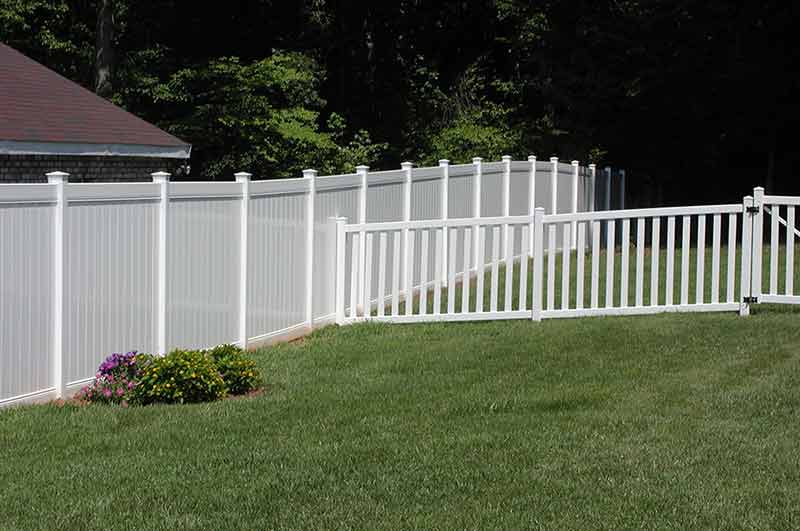
Legal Requirements for Fence Installation
When it comes to fencing, there are no laws that require you to install it around your property, unless you live next to a railway, contain livestock, or your property deeds specifically mandate it. However, there are numerous compelling reasons to consider erecting a fence, such as enhancing privacy, improving security, adding aesthetic appeal to your home, and boosting its curb value.
As a general guideline, fencing in the back garden can stand up to 2 meters (approximately 6.5 feet) in height, while front garden/driveway fences should be no taller than 1 meter (around 3 feet). If you plan to exceed these height limits, you will need to obtain planning permission from the local authorities.
Additionally, if your fence is located adjacent to a highway used by vehicles (or the footpath of a highway), anything above 1 meter in height will also require planning permission. This ensures that your fence does not obstruct visibility or pose a safety hazard for pedestrians and drivers.
By understanding and adhering to these legal requirements, you can ensure your fence installation project complies with local regulations and avoids potential disputes or complications down the line. Striking the right balance between function, aesthetics, and compliance is key to a successful fencing project that enhances your outdoor living space while respecting the needs of your community.
Fence Maintenance and Repairs
Properly installing and maintaining your fence can save you money and avoid stress with your neighbors. Without your neighbor’s permission, hanging plants, painting, or leaning something against their fence that causes damage can land you in trouble. You could be charged for criminal damage. If your neighbor’s fence is in poor condition, you cannot do any repairs, including painting, staining, varnishing or installing new fence panels or trellis.
However, you can put up your own fencing alongside your neighbor’s fence, or add free-standing plants or shrubs to hide the damage. If the fence is unsafe, you can report it to the council as a dangerous structure.
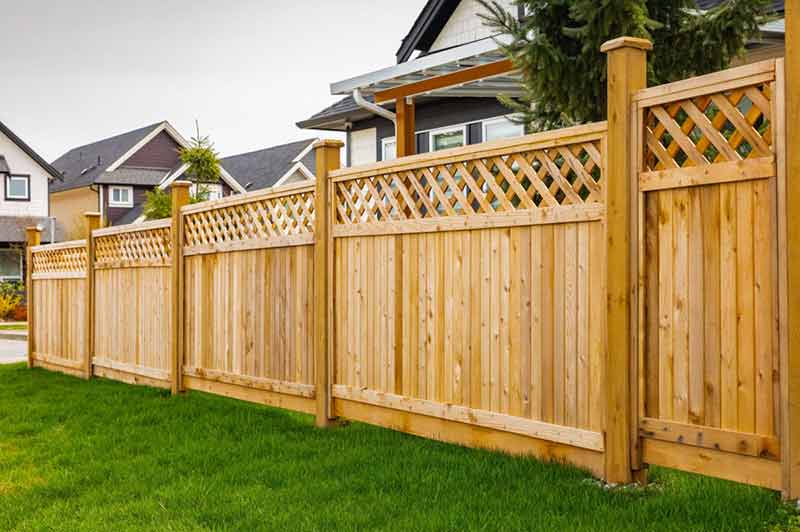
Regularly inspecting and maintaining your fence, including fence posts, fence gates, and fence materials, can help extend its lifespan and prevent costly issues down the line.
When it comes to fence repairs, it’s important to identify the root cause of the problem, whether it’s weathering, rot, or damage from impact.
Depending on the extent of the issue, you may need to replace individual fence panels, reinforce fence posts, or even install a entirely new fence.
Seeking the guidance of a professional fence contractor can ensure the work is done correctly and safely.
Conclusion
Navigating the complexities of fencing can be a daunting task, but with the right knowledge and approach, it can be a smooth and rewarding process. Understanding your property boundaries and the legal requirements for fence installation is crucial to avoiding costly mistakes and disputes with your neighbors. Before embarking on any fence work, it’s essential to determine who is responsible for the existing fence and obtain the necessary permissions.
While there may not be legal mandates requiring fencing around your property, it can provide a wealth of benefits in terms of privacy, security, and enhancing the overall value of your home. By adhering to local regulations on fence height and placement, and maintaining your fence properly, you can foster good relations with your neighbors and ensure your fence serves its purpose effectively.
At Broward County Fence, we understand the importance of fencing in creating the perfect outdoor oasis. Our team of experts is dedicated to guiding you through the process, from fence installation to ongoing fence maintenance. Whether you’re looking to enhance your property’s security, privacy, or aesthetic appeal, we have the expertise and fencing materials to bring your vision to life. Contact us today at 954-234-2699 to learn more about our services and how we can help you achieve the fence of your dreams.
For more information on fencing solutions, contact Broward County Fence at 954-234-2699 or visit their website at BrowardCountyFence.com.

